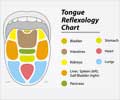Oral cancers or mouth cancers are a type of head and neck cancer which can occur anywhere in the mouth. April is ear-marked as World Oral Cancer Awareness month to raise awareness of the condition.
- April is observed as the World Oral Cancer Awareness month.
- Oral cancers or mouth cancers are a type of head and neck cancer which can occur anywhere in the mouth.
- Regular visits to the dentist and oral examinations are the best ways to detect oral cancer in the early stages.
What is Oral Cancer?
Oral cancer also called oropharyngeal cancer or mouth cancer which can occur anywhere in the mouth, on the surface of the tongue, lips, inside the cheek, in the gums, in the roof and floor of the mouth, in the tonsils, and in the salivary glands. Oral cancer collectively kills nearly one person every hour of every day of the year. Of the newly diagnosed patients, 40% will not survive longer than five years. Among those who survive, many suffer long-term problems, such as severe facial disfigurement or difficulties with eating and speaking.While early detection and treatment can reduce mortality and treatment-related health problems, these cancers are often diagnosed late in their development, owing to high death rate.
Risk Factors for Oral Cancer
- Tobacco products including cigarette, cigar and pipe smoking, chewing tobacco, betel quid, gutkha and paan.
- Alcohol
- If alcohol and tobacco are consumed together, the risk is higher
- Over-exposure to sunlight
- Human papillomavirus (HPV) - HPV can be spread through oral sex, and experts suggest that HPV infection could soon rival smoking and drinking, as one of the main causes of mouth cancer.
Prevention
- Regular dentist visits
- Look out for any changes in your mouth, while brushing and report any red or white patches, or ulcers, that have not cleared up within three weeks.
- Apply sunscreen on your lips when exposed to the sun
- A diet rich in vitamins A, C and E, provides protection against the development of mouth cancer.
- Limit intake of tobacco and alcohol.
Reference:
- About Oral Cancer Awareness Month - (https://oralcancerfoundation.org/events/oral-head-neck-cancer-awareness-month/)
















